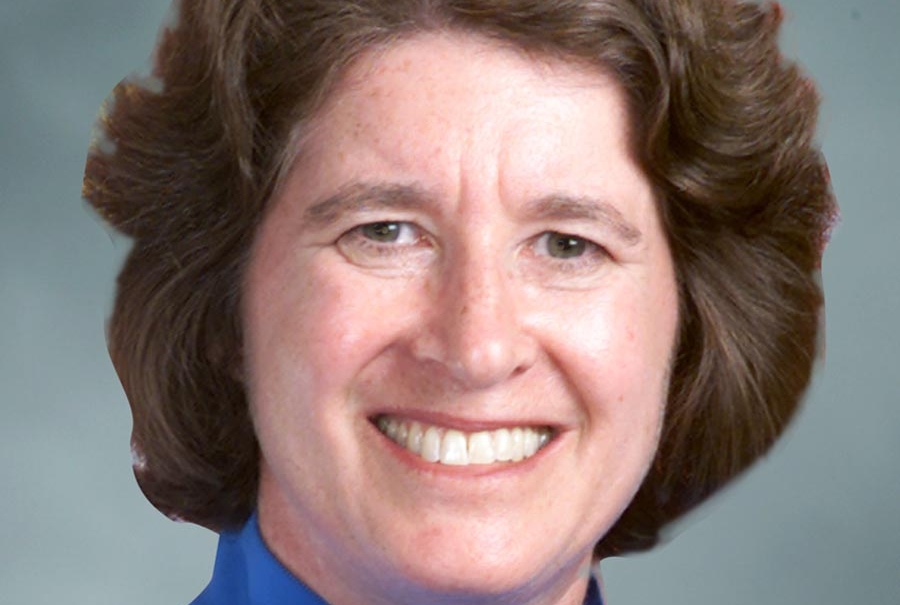In a new book, public health expert Madelon Finkel, PhD, explores the potential perils of 'fracking'
By Beth Saulnier
The controversial fuel-extraction method known as hydraulic fracturing is a hot topic in states from New York to California. Supporters call the technique a safe and affordable method of obtaining natural gas — while opponents argue that it threatens public health by polluting water supplies and exposing people to toxic chemicals.
Dr. Madelon Finkel has been at the forefront of research into the threats that the process, also called "fracking" or unconventional gas extraction (UGE), may present to human health. But proving a causal link is no easy task, she says, because so many other factors are at play. For example, one cancer cluster in a heavily drilled area of southwestern Pennsylvania proved to be more complicated than it first appeared. "Using a fabulous database from the state health department, I can see where active and inactive wells are; I can see where the cluster is, and I have cancer data by township," Dr. Finkel says. "And what I found is that I can't with certainty say that people are sick because of unconventional gas extraction. Further, I uncovered the fact that there was a huge uranium mining operation there in the 40s and 50s. So is it the uranium? Or is it something in the water? We know that streams get polluted because of the unconventional gas process. What's going on?"
Dr. Finkel, a professor of clinical healthcare policy and research, explores the causation dilemma and many other issues in a book entitled "The Human and Environmental Impact of Fracking: How Fracturing Shale for Gas Affects Us and Our World." The volume, for which she served as editor, features chapters addressing UGE on a variety of fronts — effects on human health, implications for food safety, air quality, climate change, regulatory issues, the toll of boom-bust cycles on communities and more. It includes contributions from several Weill Cornell faculty including Dr. Adam Law, a clinical assistant professor of medicine, who discusses the effects of fracking-related chemicals on the endocrine system, and Dr. Inmaculada de Melo-Martin, a professor of medical ethics in medicine, who teams up with former Weill Cornell research associate Jake Hays to tackle the technology's ethical issues. The book (which came out in February from Praeger) also offers an industry perspective, with a chapter by an environmental health advisor from ExxonMobil. "This is one of the more important public health issues of our day," Dr. Finkel says. "I felt that this issue was attracting so much attention — and there was a lot of misinformation out there — that I wanted to get independent experts to write chapters based on the best evidence and present the facts as we know them."
Dr. Finkel became interested in fracking through a daughter who lives in Pennsylvania, where the method is widely practiced. She teamed up with Dr. Law, who practices endocrinology in Ithaca, a hotbed of anti-fracking sentiment; he'd become involved in public health research about fracking after some of his patients expressed concern about its potential for hormone disruption. "The main thrust of what she and I have been doing has been educating people — whether they be doctors, the public, or policymakers — about the potential effect of this technology on the health of populations," says Dr. Law, co-founder of the nonprofit Physicians, Scientists & Engineers for Healthy Energy. The two co-wrote a seminal article on the subject, "The Rush to Drill for Natural Gas: A Public Health Cautionary Tale," published in the American Journal of Public Health in May 2011. "We were there at the beginning of this literature, and at this point it's growing very fast," Dr. Law says. "But a lot of questions are still unanswered."
For Dr. Law, the issue hits close to home. Many landowners in Upstate New York leased their property for drilling, and fracking was a divisive issue for years — until Governor Andrew Cuomo announced in December that he'd ban the practice on the grounds that it presents a danger to public health. And that, of course, is a finding about which the dueling sides strongly disagree. Proponents hold that not only is fracking safe, it's essential to lowering America's dependence on foreign oil in the post-9/11 world; opponents argue that in addition to its public health hazards, it contributes to global warming by releasing methane during the extraction process, and that drilling harms nearby communities through higher crime rates, skyrocketing rents and other ills.
Dr. Finkel isn't calling for a ban on fracking, which she notes would hardly be a practical goal given its ubiquity and the fortunes at stake. But if unconventional drilling methods are going to be used, she says, she wants them done safely and responsibly. With the potential perils still unknown — and the industry exempt from key environmental regulations — she stresses that solid research is essential to protecting the public. "As an epidemiologist, to me the focus on human health is of paramount importance," Dr. Finkel says. "How do you start doing something that has such significant potential for harm without really doing your homework?"
This story will appear in Weill Cornell Medicine, Vol. 14, No. 1.

